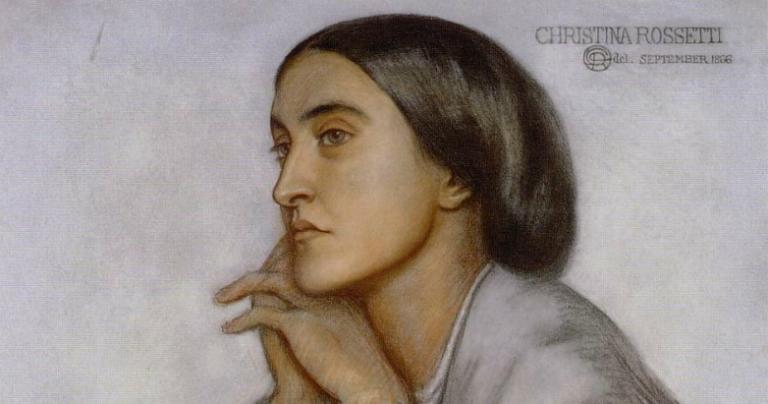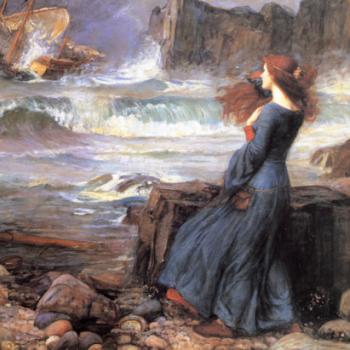 “No.”
“No.”
This is a powerful statement, particularly when said to what everyone is doing or at least to most people who matter most. Marketing hates “no,” because “no” means no sale.
Christina Rossetti was born in an age where “no” was a necessity. Judas had always sold Jesus for cash, but now Judas was a corporation selling Jesus for big money. The devils and the devilish in us always peddle “cool” over beauty, because “cool” can get us to beclown ourselves and pay for the privilege.
Beauty does not change, so it is hard to resell or even sell at all. The Church keeps giving it away for free. We can go to the beautiful cathedral, listen to Handel, and gaze at the art of Dante Rossetti for free. Trendiness costs, big league. Against the love of money, marketed as a Protestant ethic, Rossetti said “no.”
That is hard enough, but she endured and created an alternative reality. Home-schooled, she knew that the home could be an alternative that was better, truer, and more beautiful than the “real” world outside. She was right. Her poetry has endured, she gave us In the Bleak Midwinter at Christmas and Goblin Market for All Hallows. She understood that a life dedicated to beauty was better than a life spent in skepticism.
Being skeptical?
That’s a good life skill. Skepticism? The non-religious of her time are like the non-religious now: sure they are just about to win, to usher in a great millennium, but with nothing to say but continuous, repetitive criticism of the Church. Atheism could not produce a culture in the Victorian era, only snark and Rossetti had no interest in criticism that only led to more criticism.
Instead, she wrote and lived beautifully and that has endured. How could she do this?
Rossetti understood that everything is good. She had no time for the puritanical anymore than skepticism: atheism is just Puritanism without God: censorious, crabbed, and full of anger. Puritanism is just atheism with the god of the atheists: angry, arbitrary, and abominable. Rossetti worshiped the God at war with injustice, but full of love for the weak. She was catholic, full of universality. There was nothing in the cosmos she had to reject fully, so she could say “no” those aspects of her society that were illusions, the false that was sure to fade away and fail over time. The illusionist could be saved and even good found in him for he was made in God’s image. The illusions had to be named illusions in the name of Truth!
Let her speak:
“Behold, it was very good.”
All things are fair, if we had eyes to see
How first God made them goodly everywhere:
And goodly still in Paradise they be,— All things are fair.
O Lord, the solemn heavens Thy praise declare;
The multi-fashioned saints bring praise to Thee,
As doves fly home and cast away their care.
As doves on divers branches of their tree,
Perched high or low, sit all contented there Not mourning any more; in each degree
All things are fair.
The mistake is to think that the shadow world, the changing, is the only reality when it is derivative: dependent on a deeper truth. There exists another world. This is the world where numbers, shapes, and ideas exist. This is the eternal that gives the temporal what reality it has. In reality, hard reality, as unshakeable as one and one is two, beauty endures. One woman in one room writing one poem is mighty, because it is real as beauty.
Christina Rossetti said, “Yes” to beauty and her world endures.












